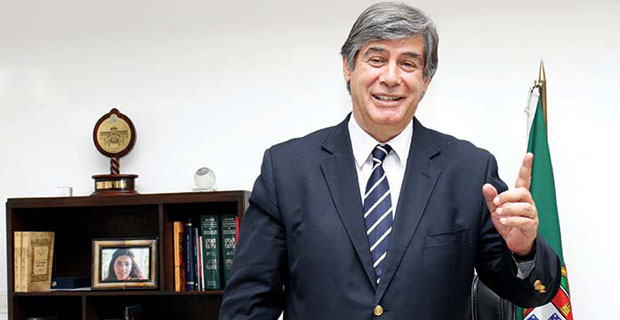“There is a growing interest in Portugal about India”
Ever since the Carnation Revolution that restored democracy in Portugal, its ties with India have been on an upswing. Diplomatic relations between the two nations were revived in 1975, paving the way for several high level visits. H.E. Mario Soares visited India both as Prime Minister (1984 for the funeral of Mrs Indira Gandhi) and as President of Portugal (1992 as Chief Guest at the Republic Day). President Anibal Cavaco Silva and Prime Minister Jose Socrates visited India, both in 2007. From the Indian side, President R Venkatraman (1990) and President K R Narayanan (1998) made state visits to Portugal. As Prime Minister, Mr A B Vajpayee attended the India-Portugal Summit in 2000. Several other Parliamentary level and ministerial visits have followed. Now there is a definite buoyancy and momentum in relations that cannot be missed. Ambassador Joao da Camara spoke to Editor and Publisher Sayantan Chakravarty on a range of issues ...
Portugal and India share strong political and diplomatic relations for over 4 decades. What are the major areas in which the relations have been strengthened?
First of all, politically, we have had very high ranking visits in both directions. You can see that from the pictures that are displayed in my room. We have had two state visits to India, first from President Mario Soares, and then by President Anibal Cavaco Silva. We’ve had two Indian Presidents on state visits to Portugal, and Prime Ministers visiting on either side. Since 1974, when we re-established relations, and until now, there has not only been an increase in bilateral visits, but enormous cooperation in many fields. We have established economic relations, but we’d like to improve on that. We have good political dialogue. We have people on both sides that are nationals of the other. Overall, we have a good base for interaction between the peoples of Portugal and India. Relations are very positive and good.
Ties became more significant when on October 9, 2015, Portugal became the first European and western country to sign the Memorandum of Understanding on the establishment of Nalanda University. Your views on this please…
Let me at the outset say that this happened largely because of the role played by the Indian ambassador in Lisbon. He remained extremely active in order to secure our support in becoming members of Nalanda University. In fact, cooperation at the level of universities is one of our major objectives in India. It is an area that is well developed. We’ve a lot of Indian researchers visiting Portugal. Also a lot of Portuguese are coming to India for research. Universities, of course, have their own autonomy, so they can do their own collaborations and agreements. But things can also be expedited at the level of countries working together, and the MoUs signed were a result of such kind of efforts that fall within the framework of our will to cooperate at the university level with India. We are indeed very happy that we are the first European country to sign the agreement with Nalanda.











Comments.